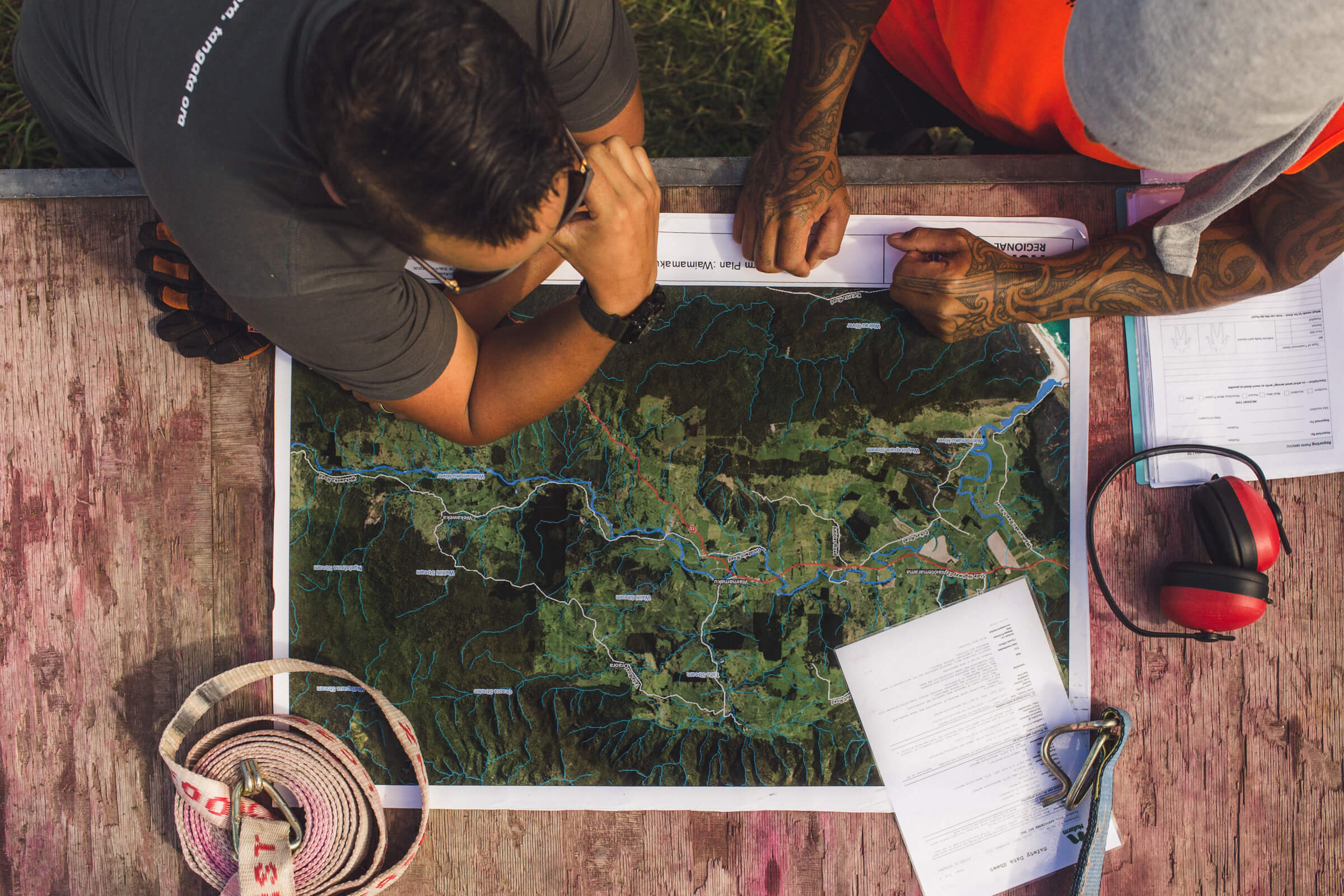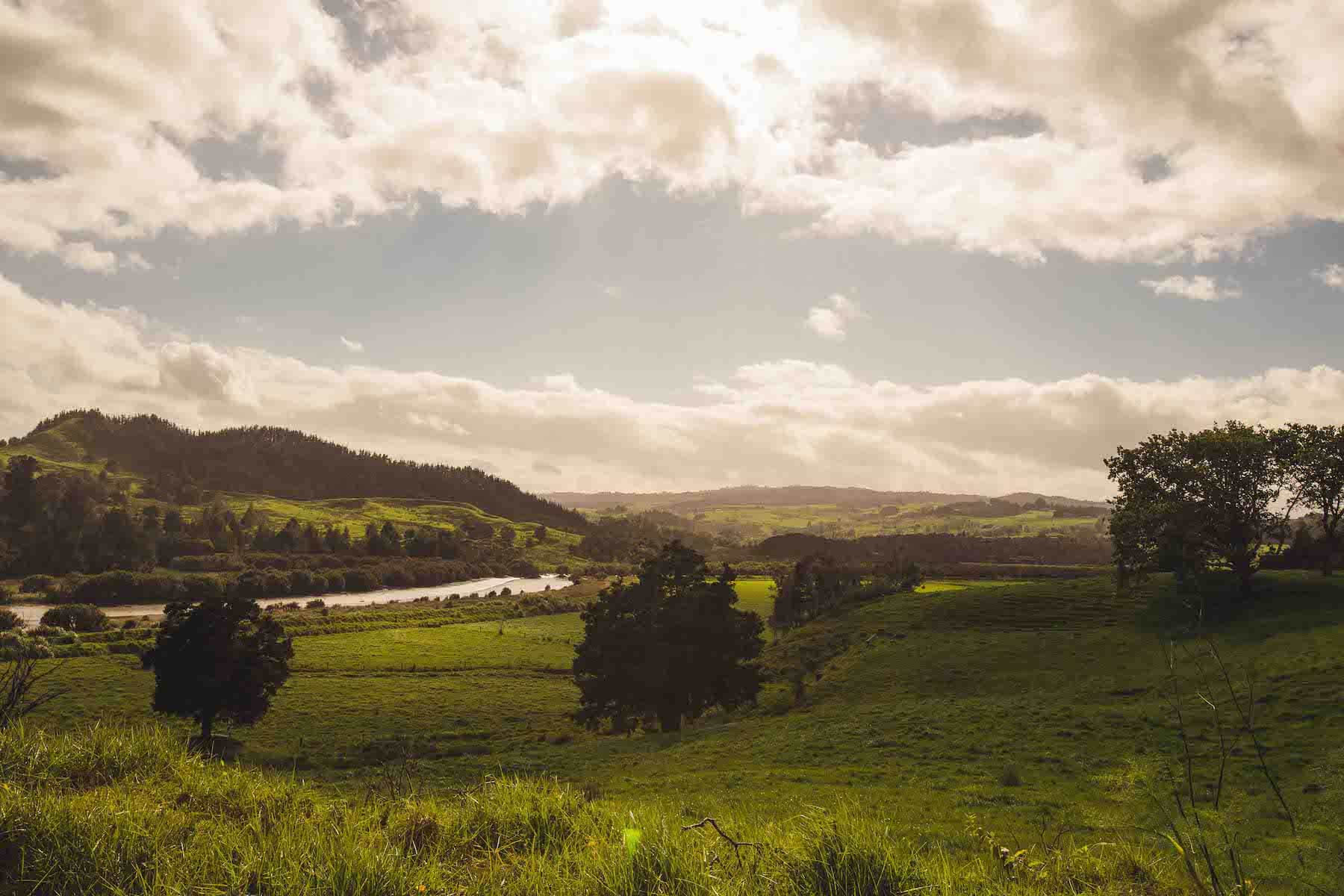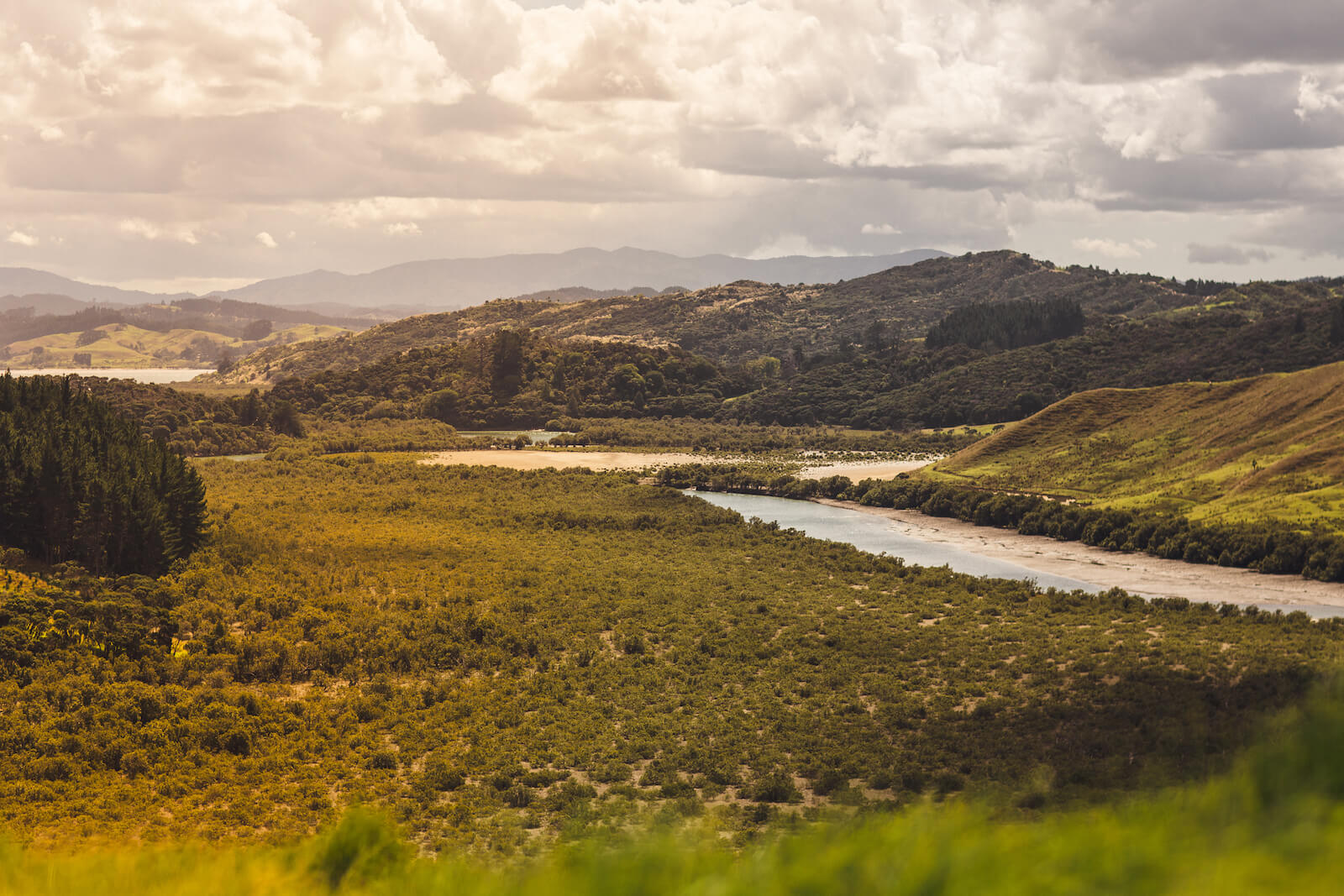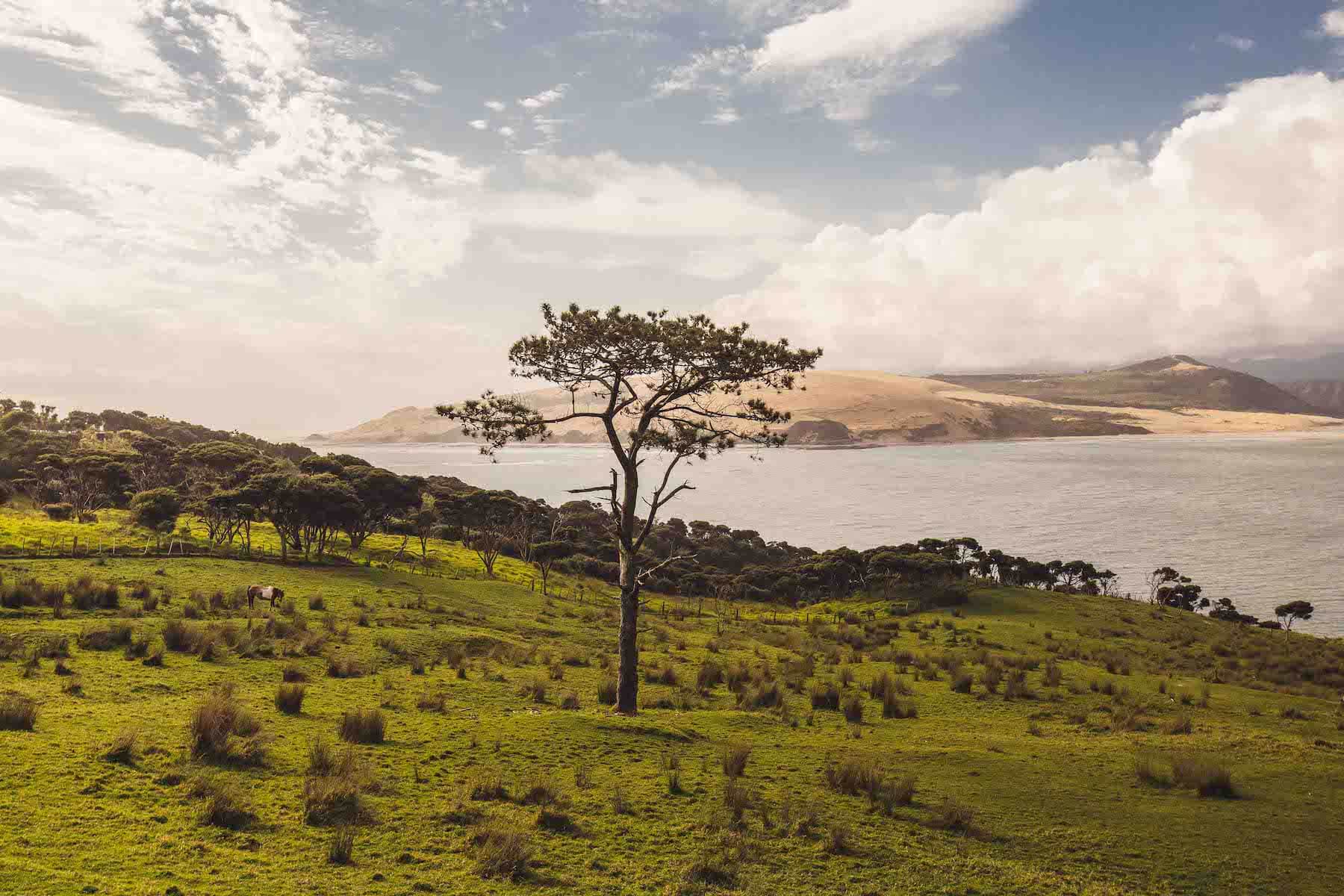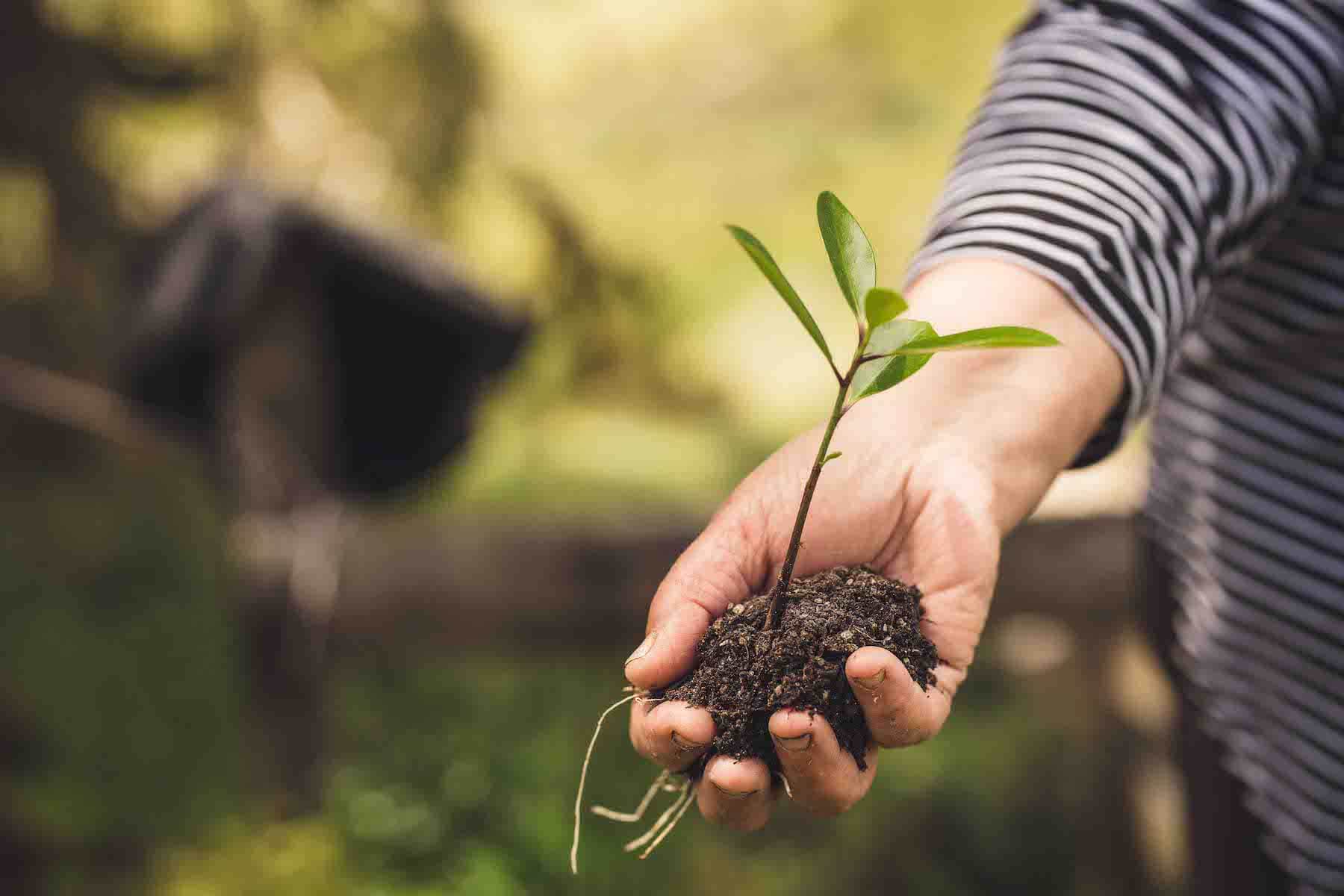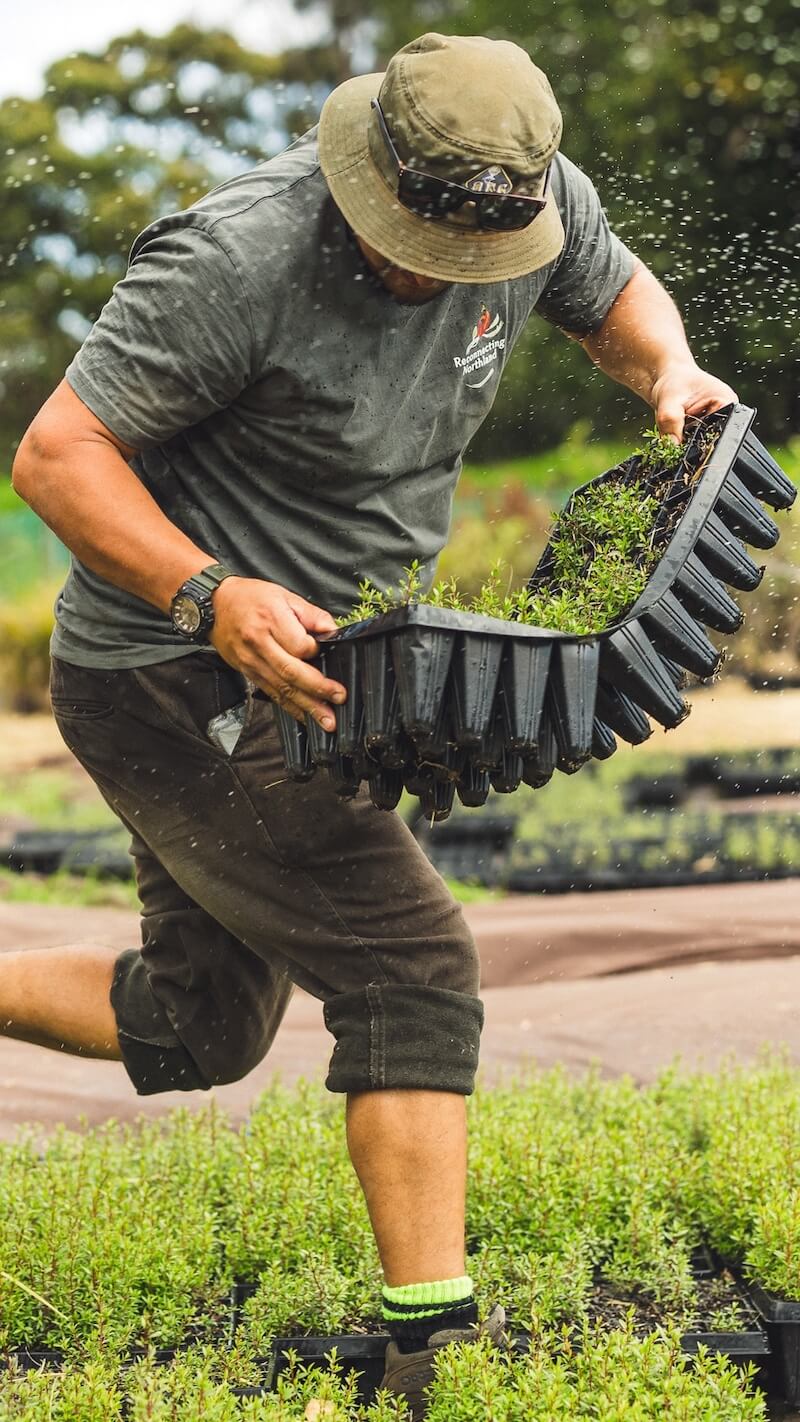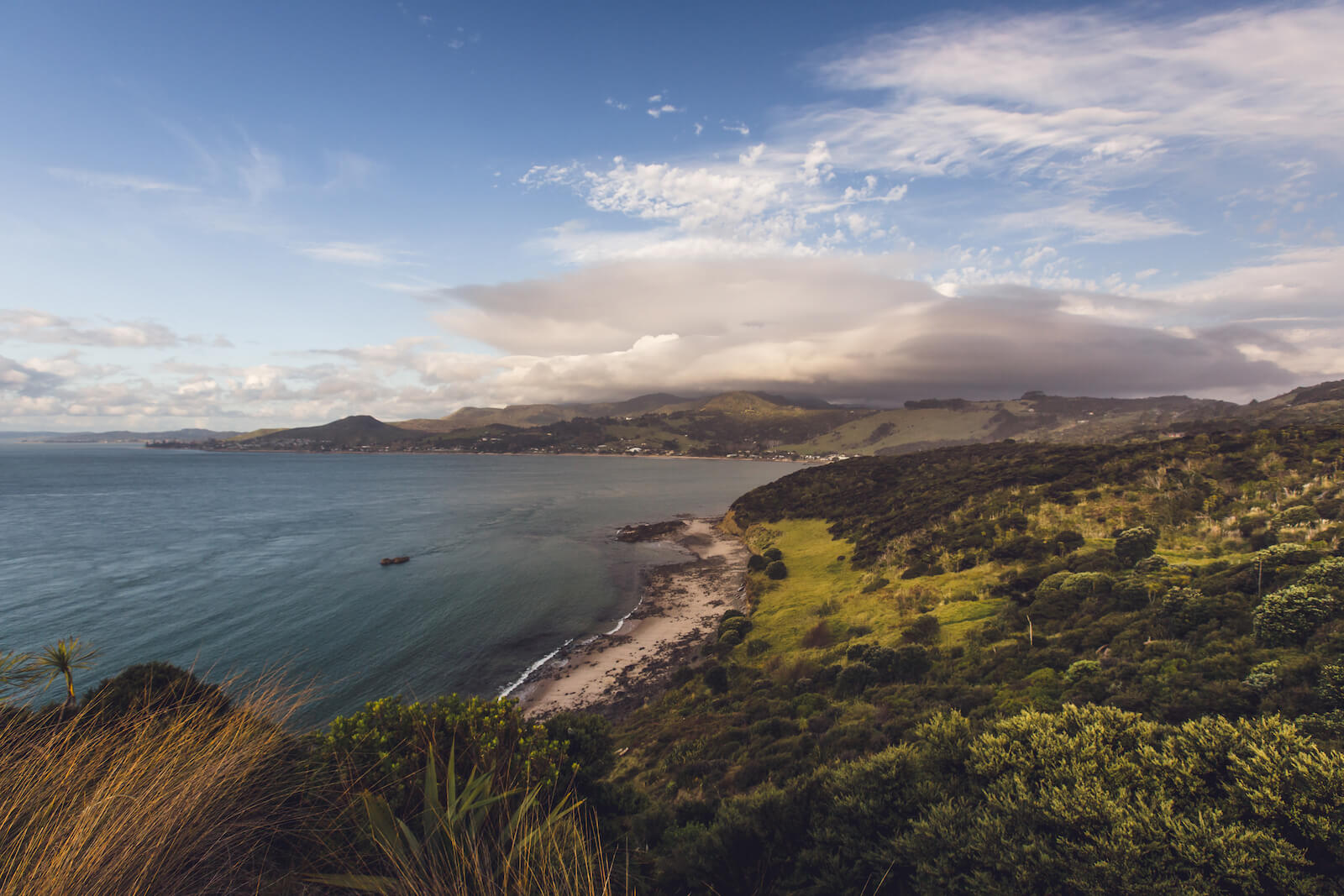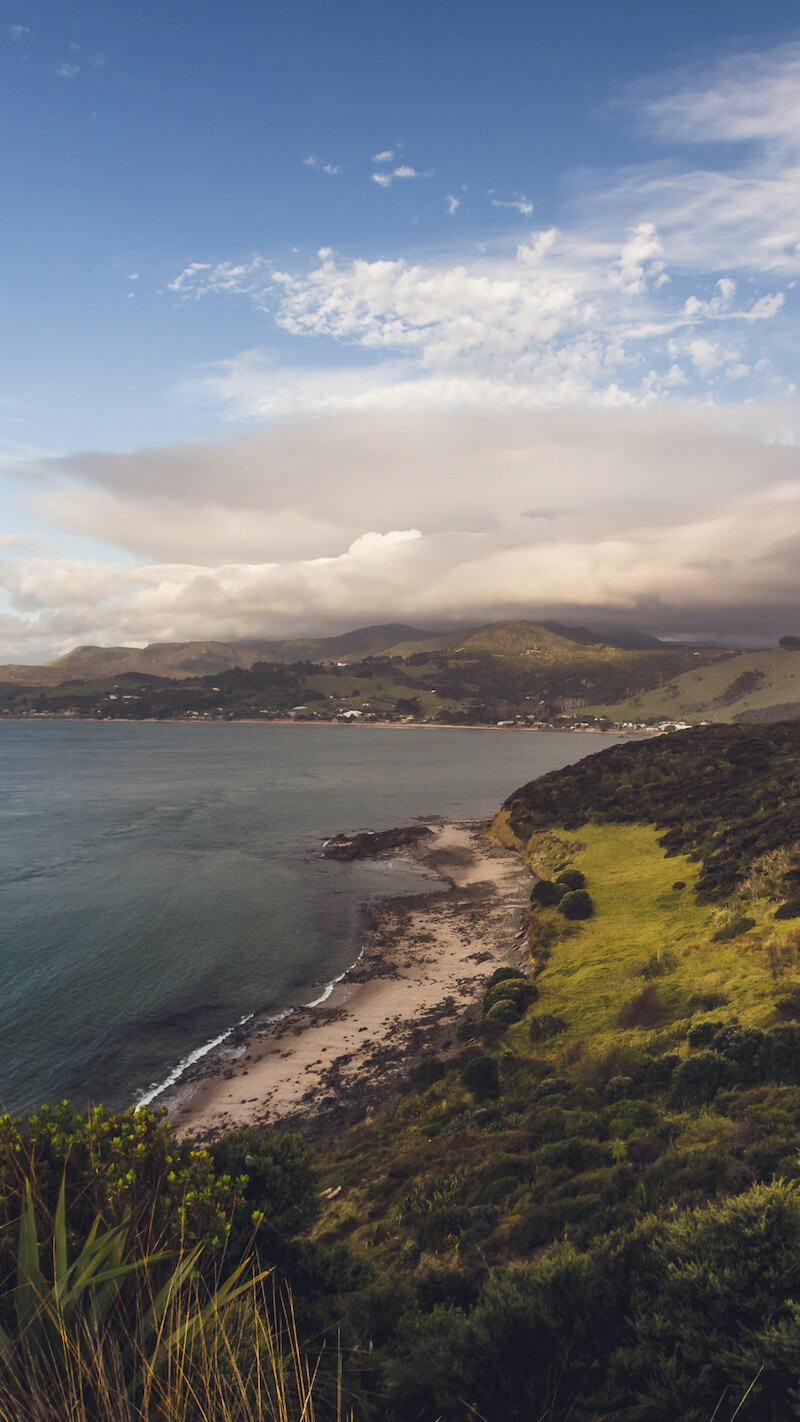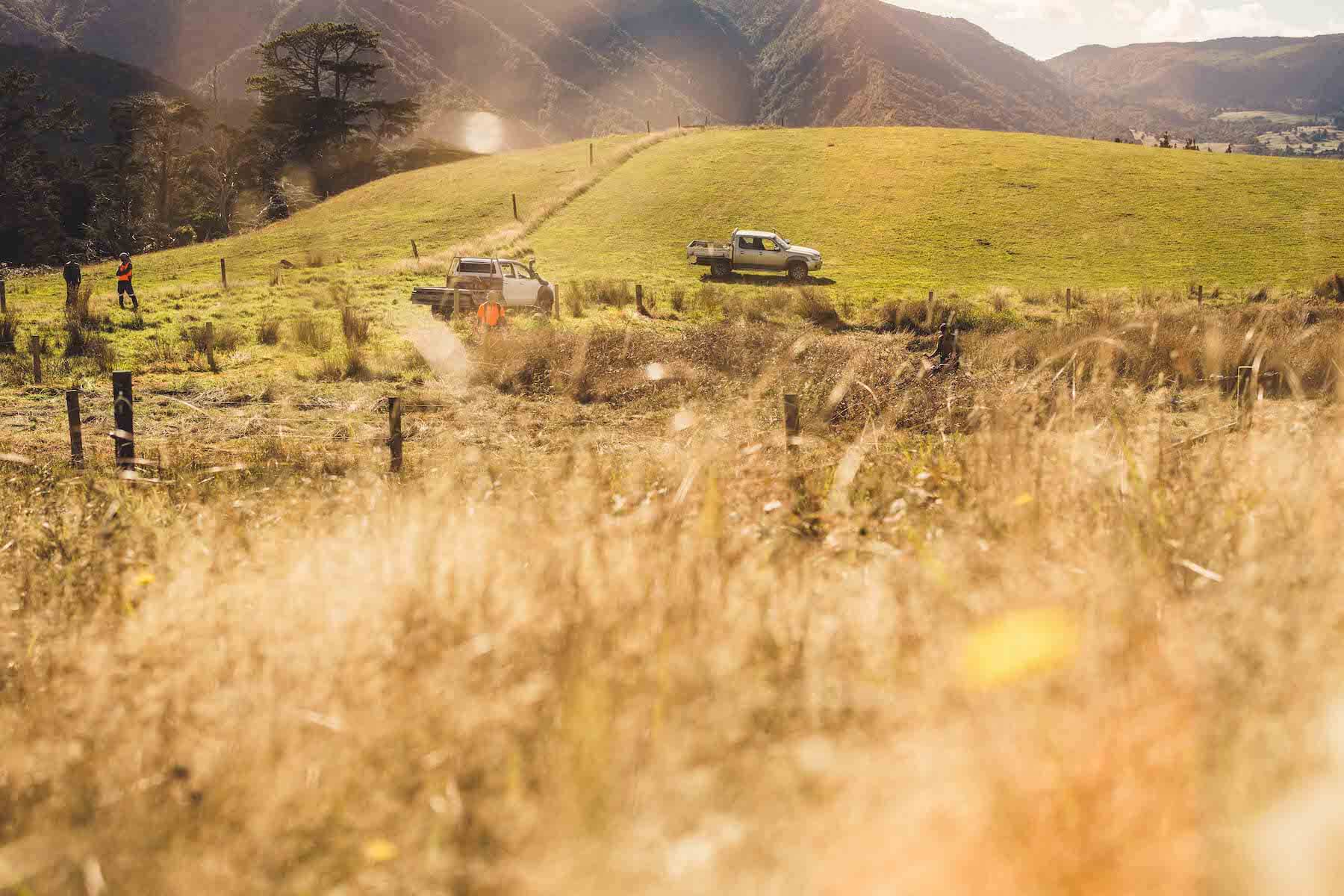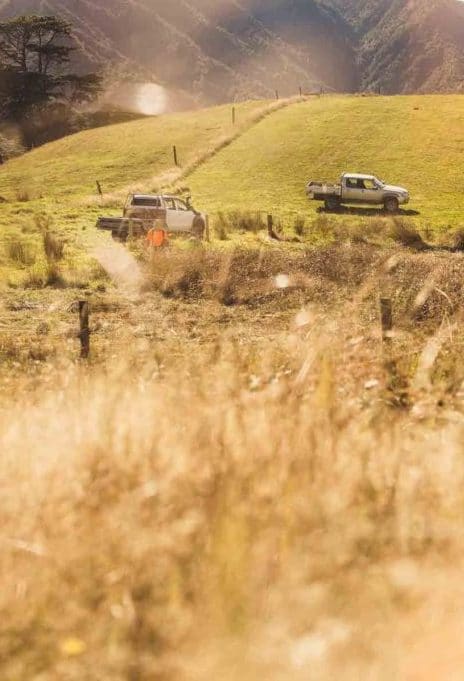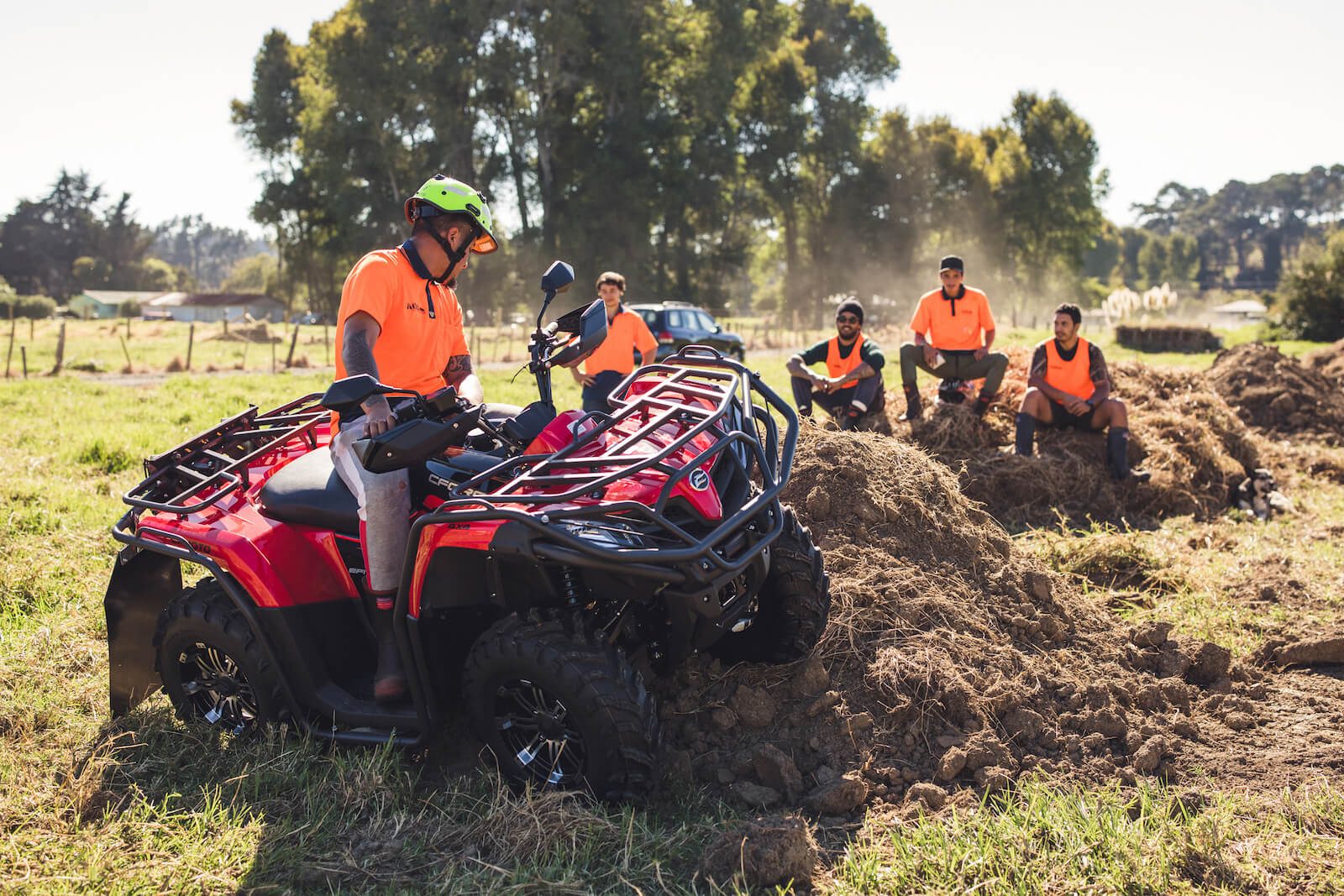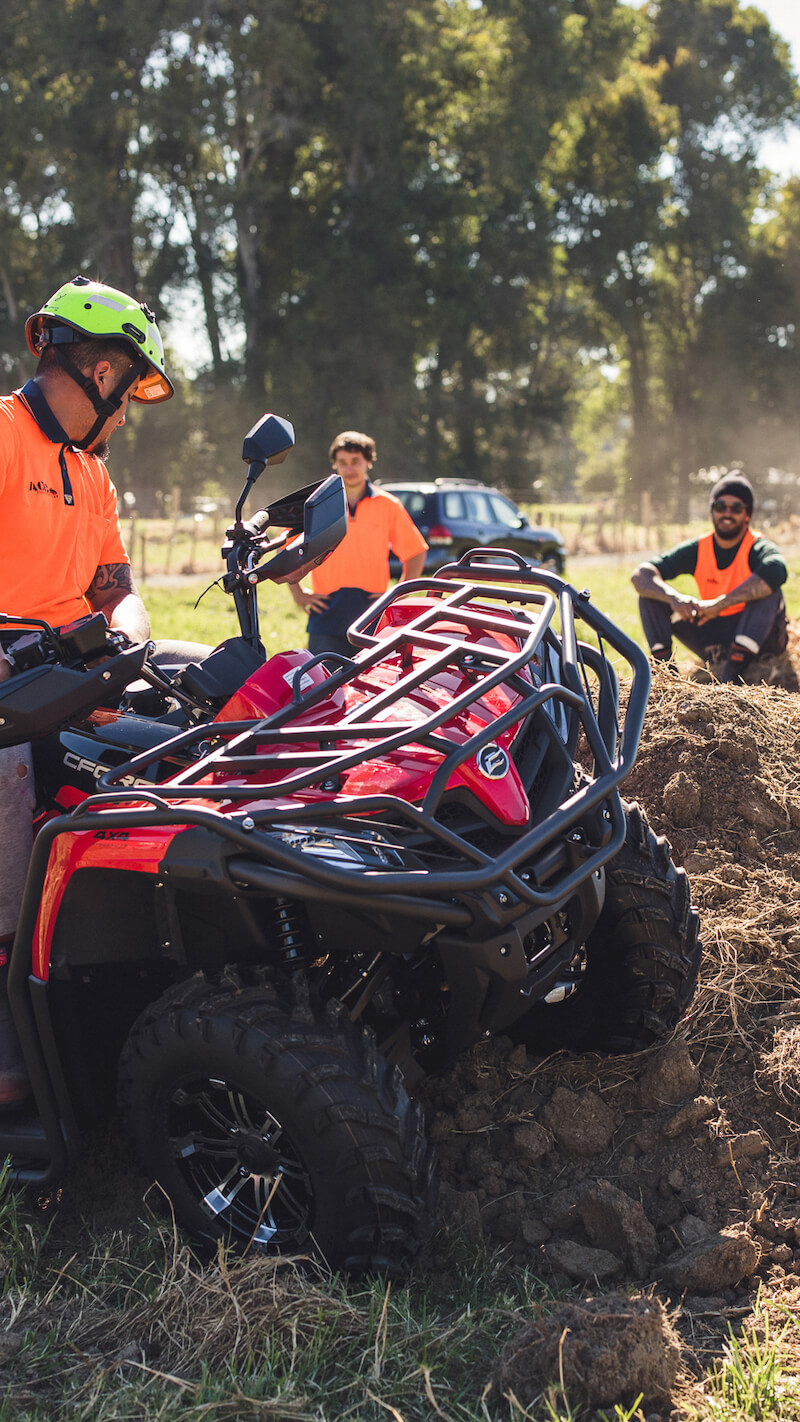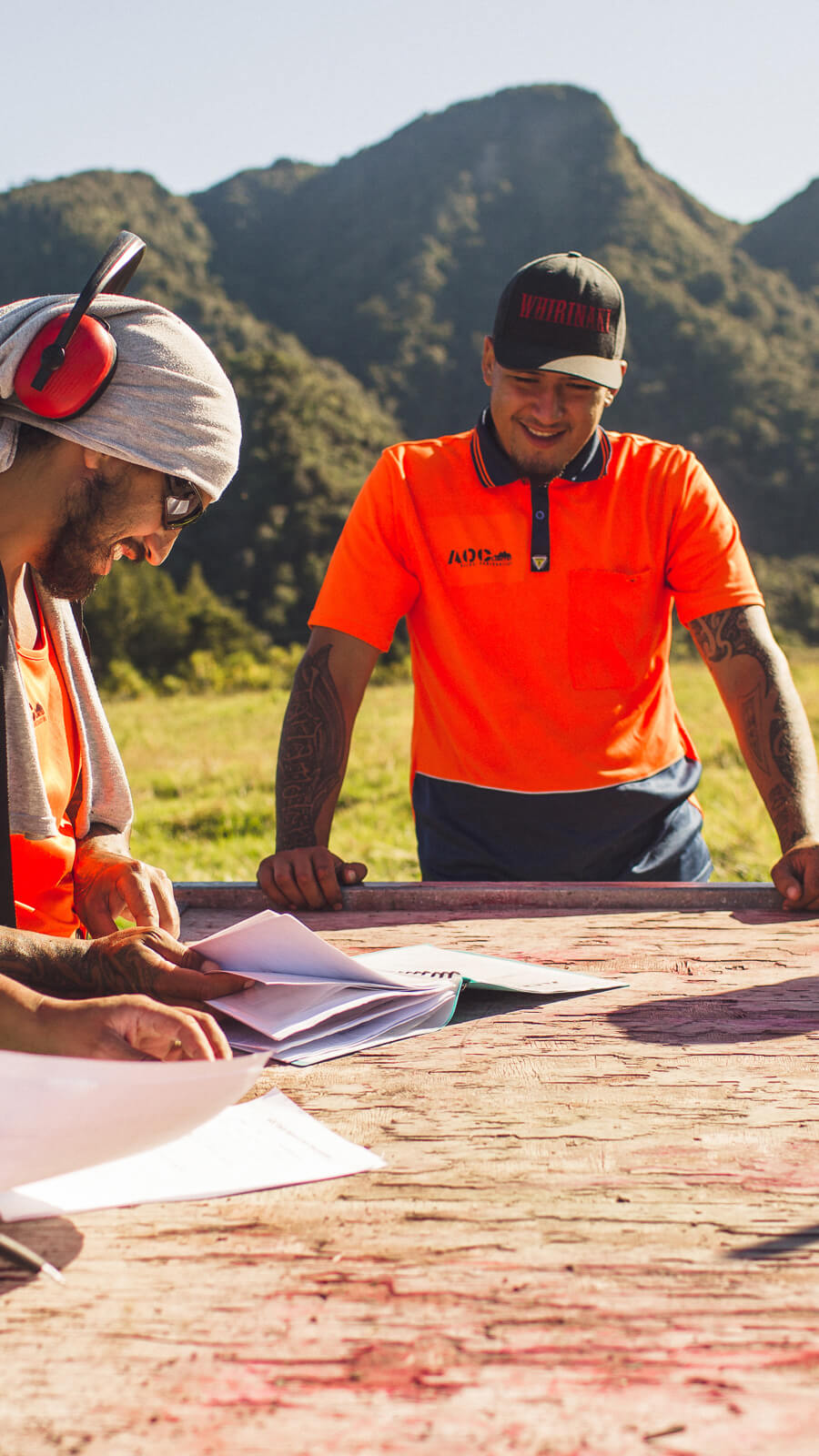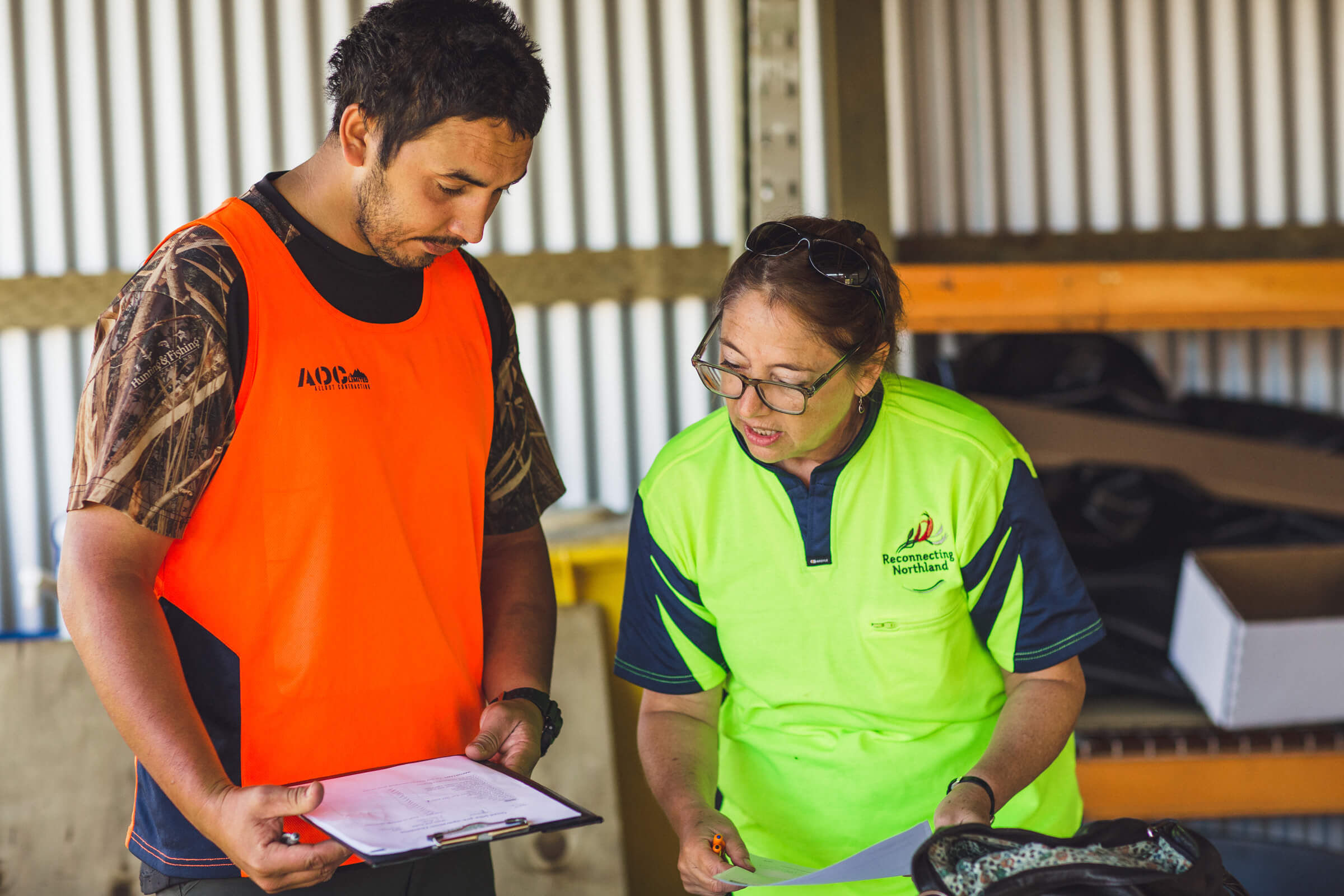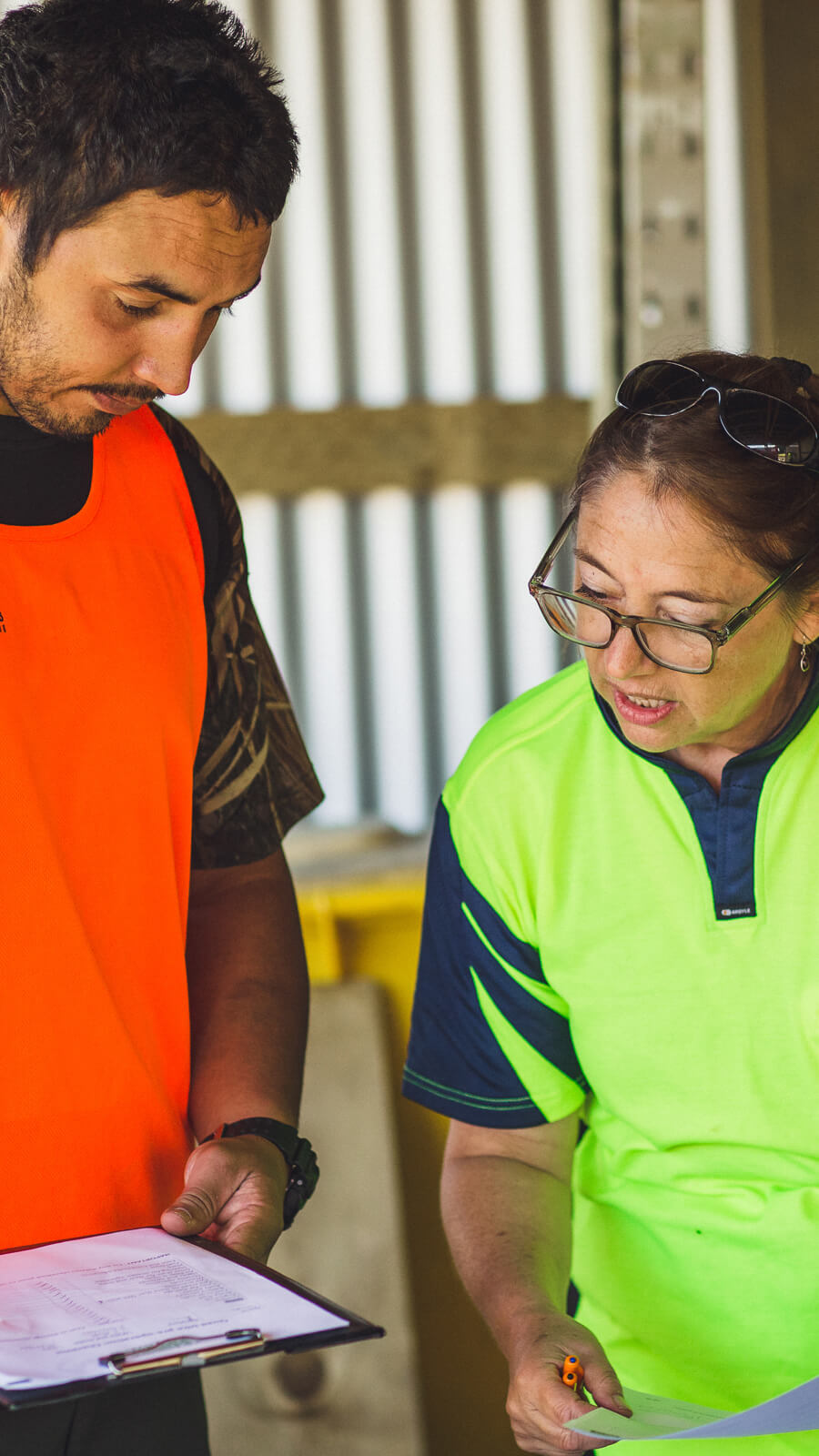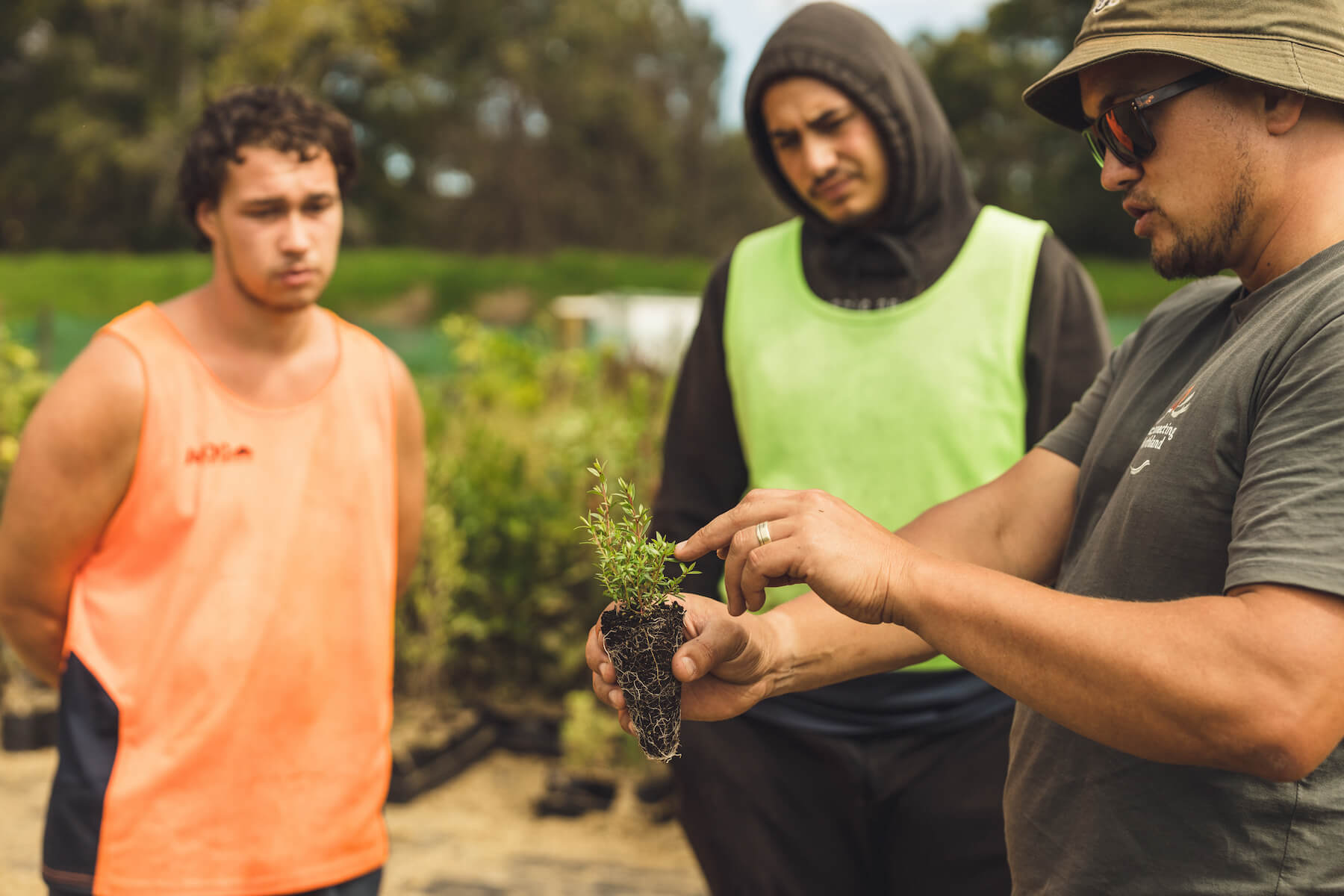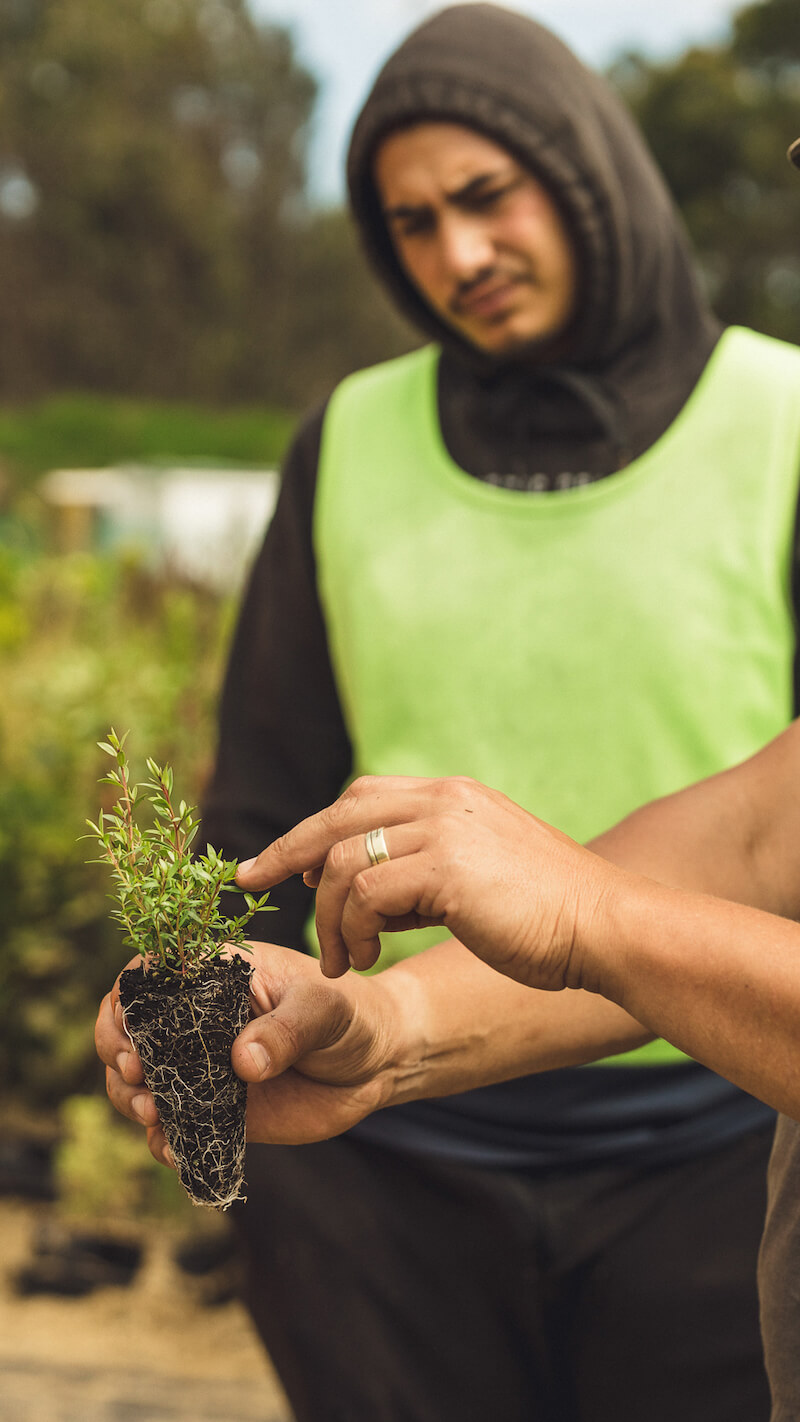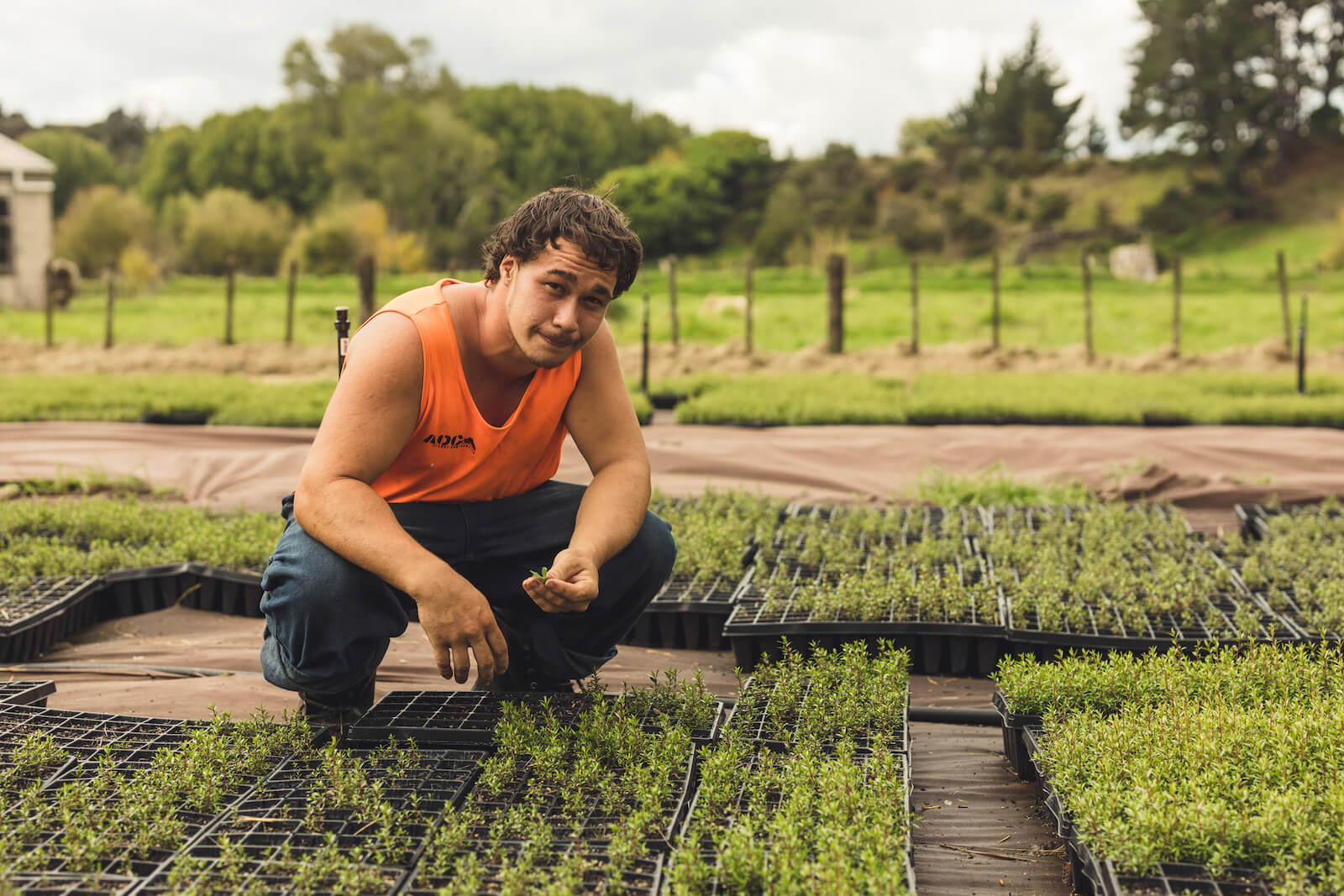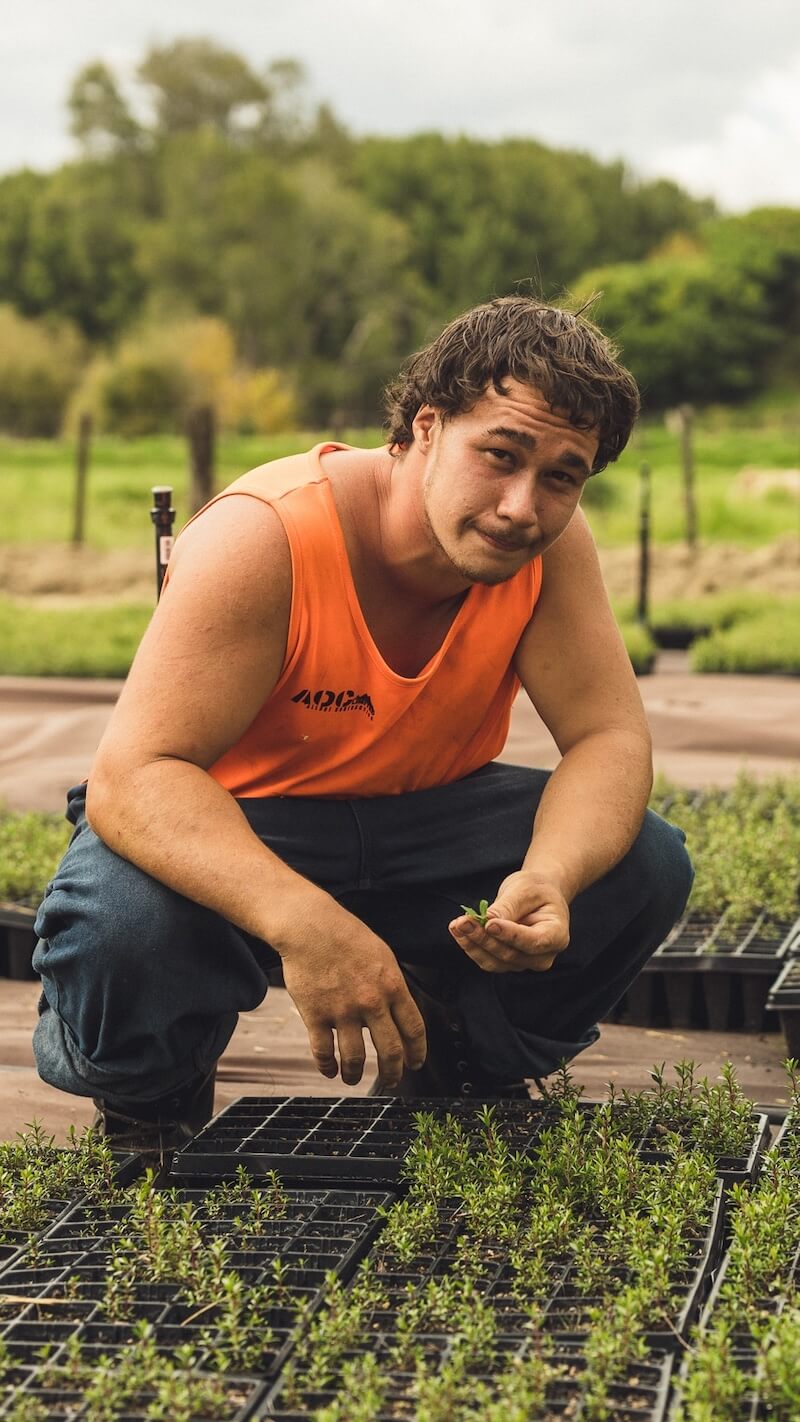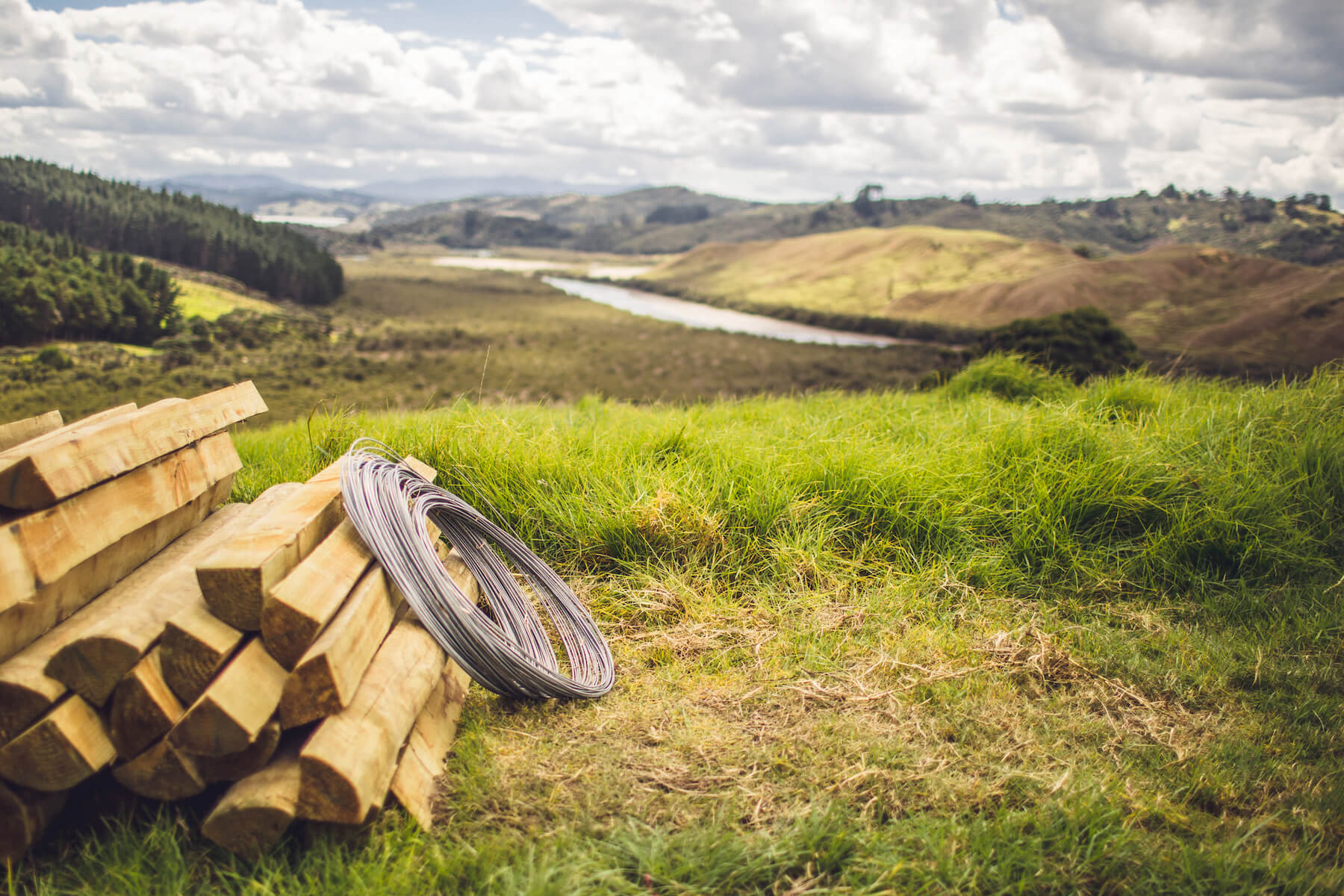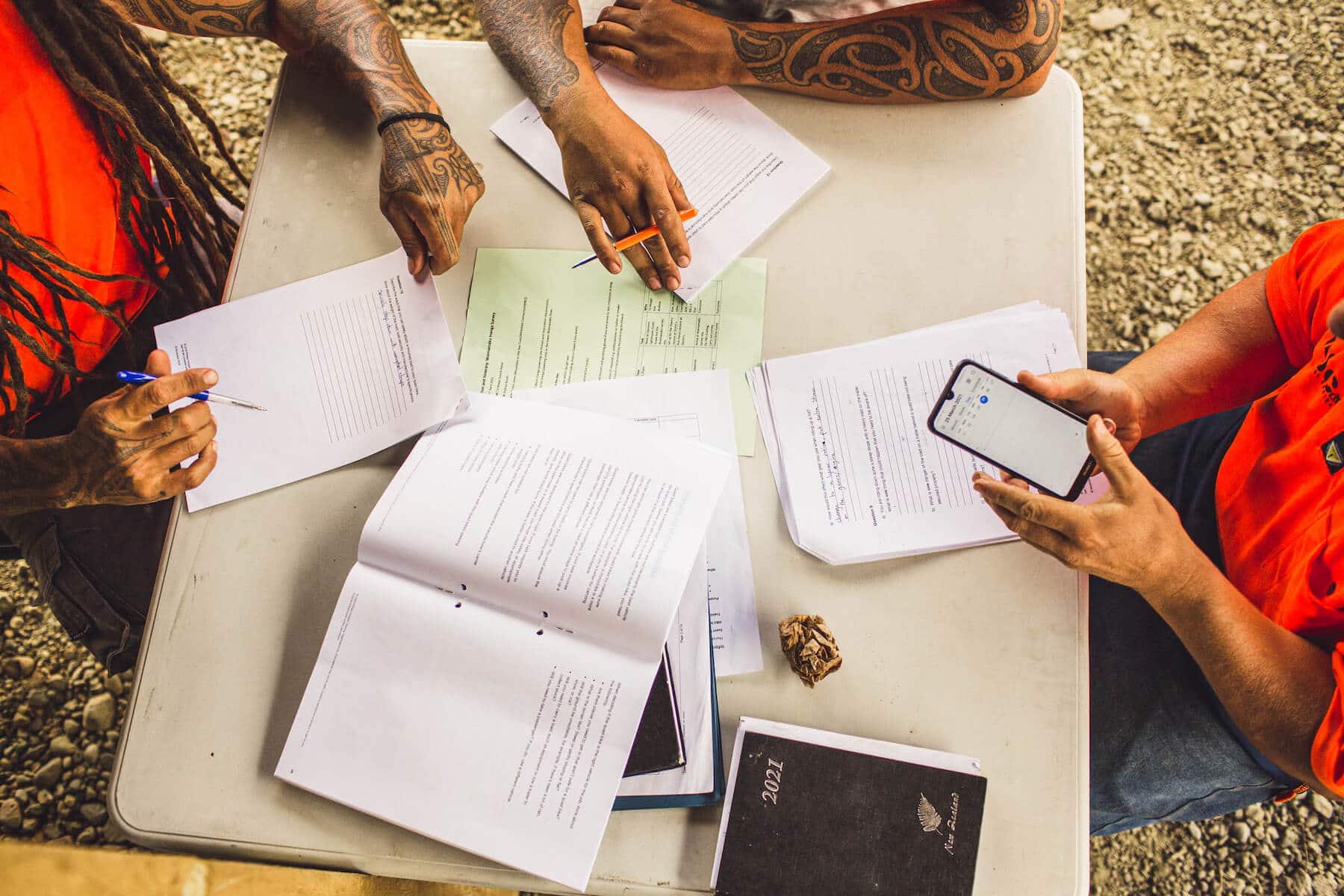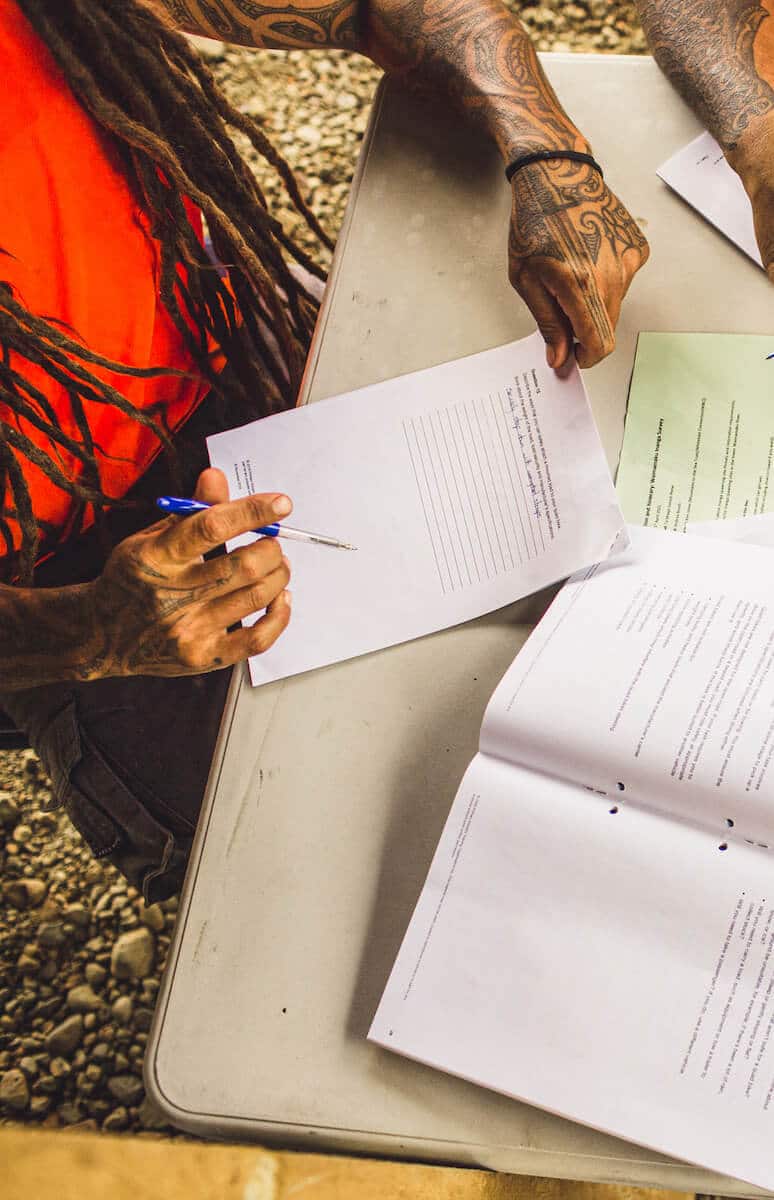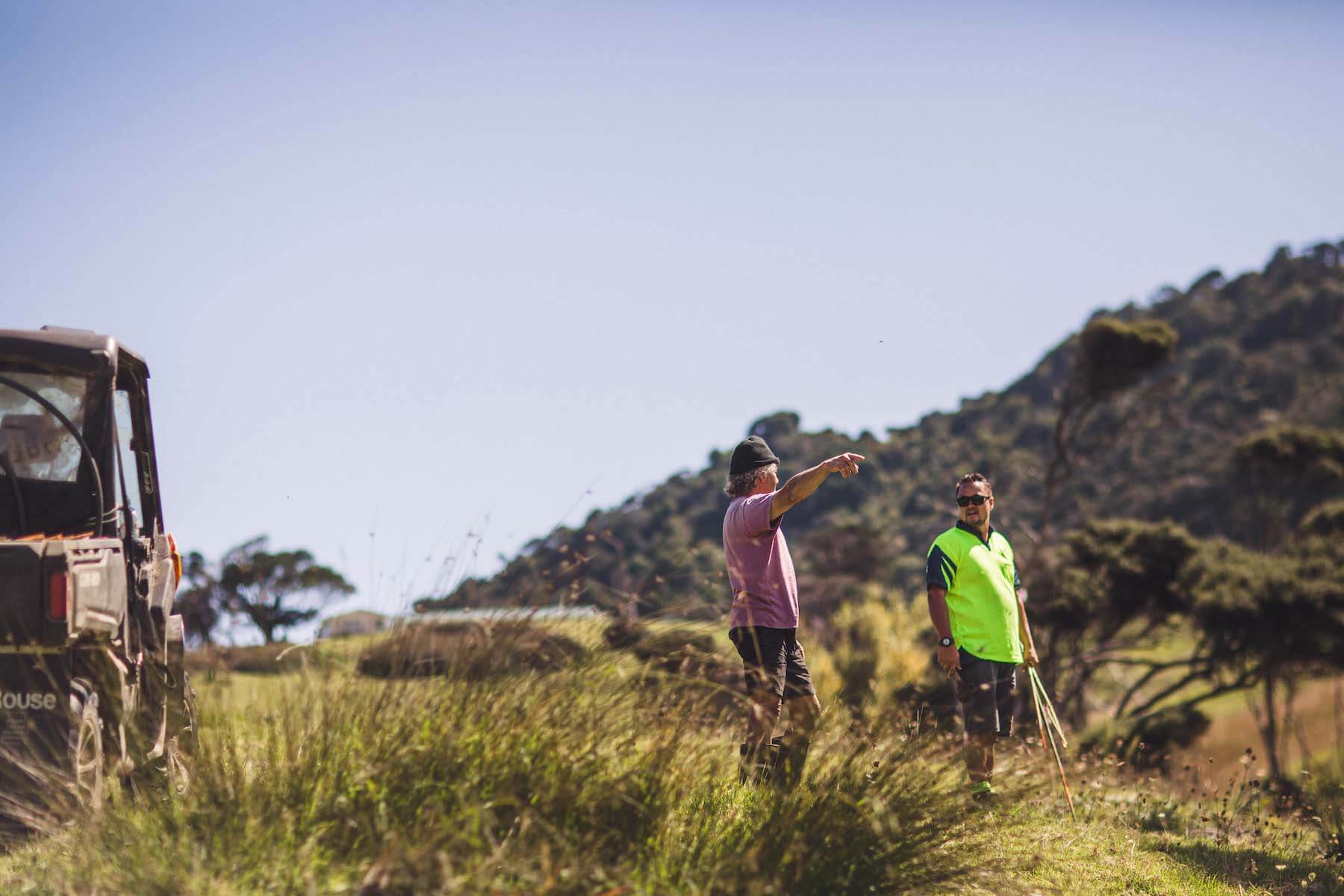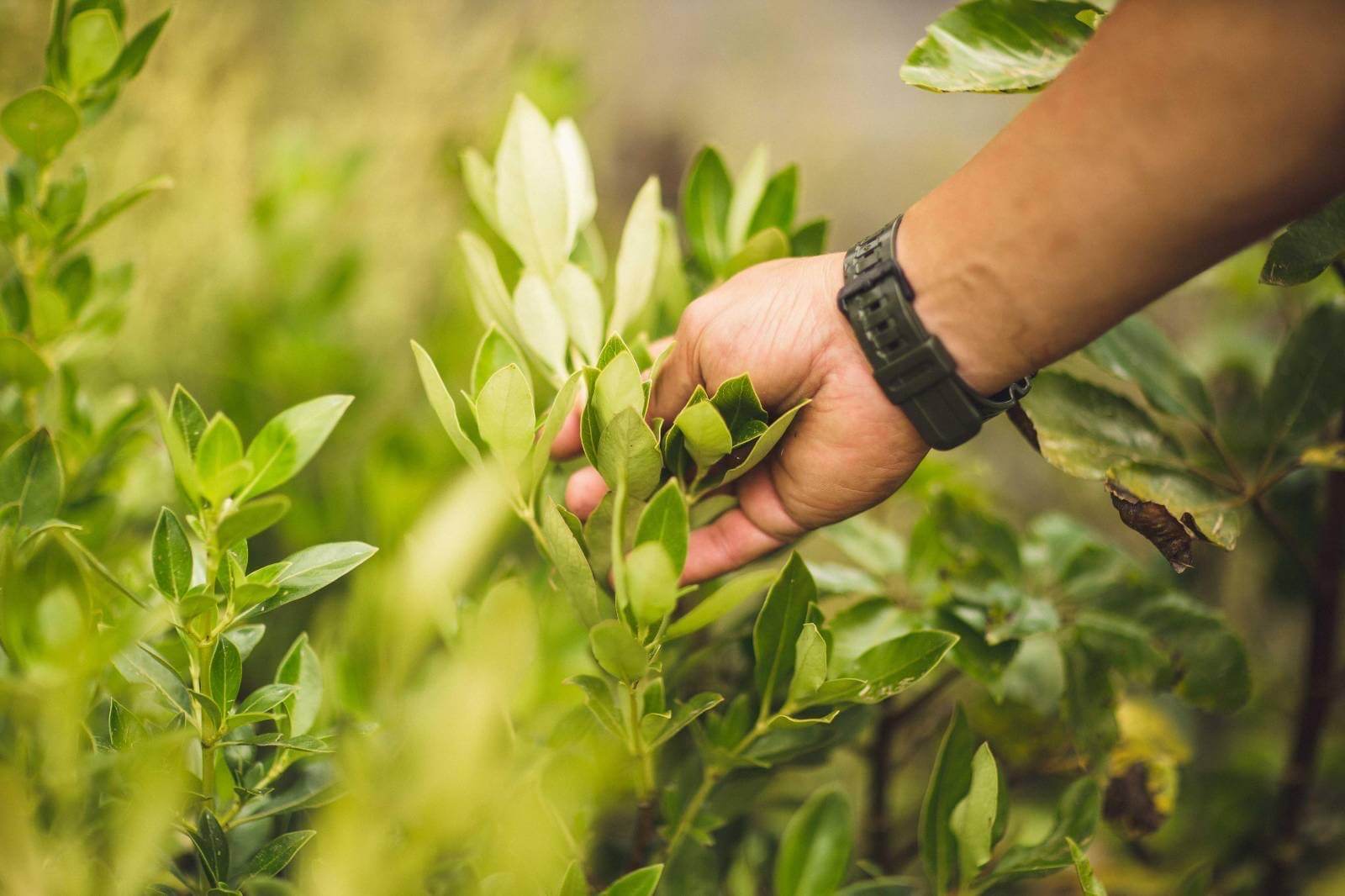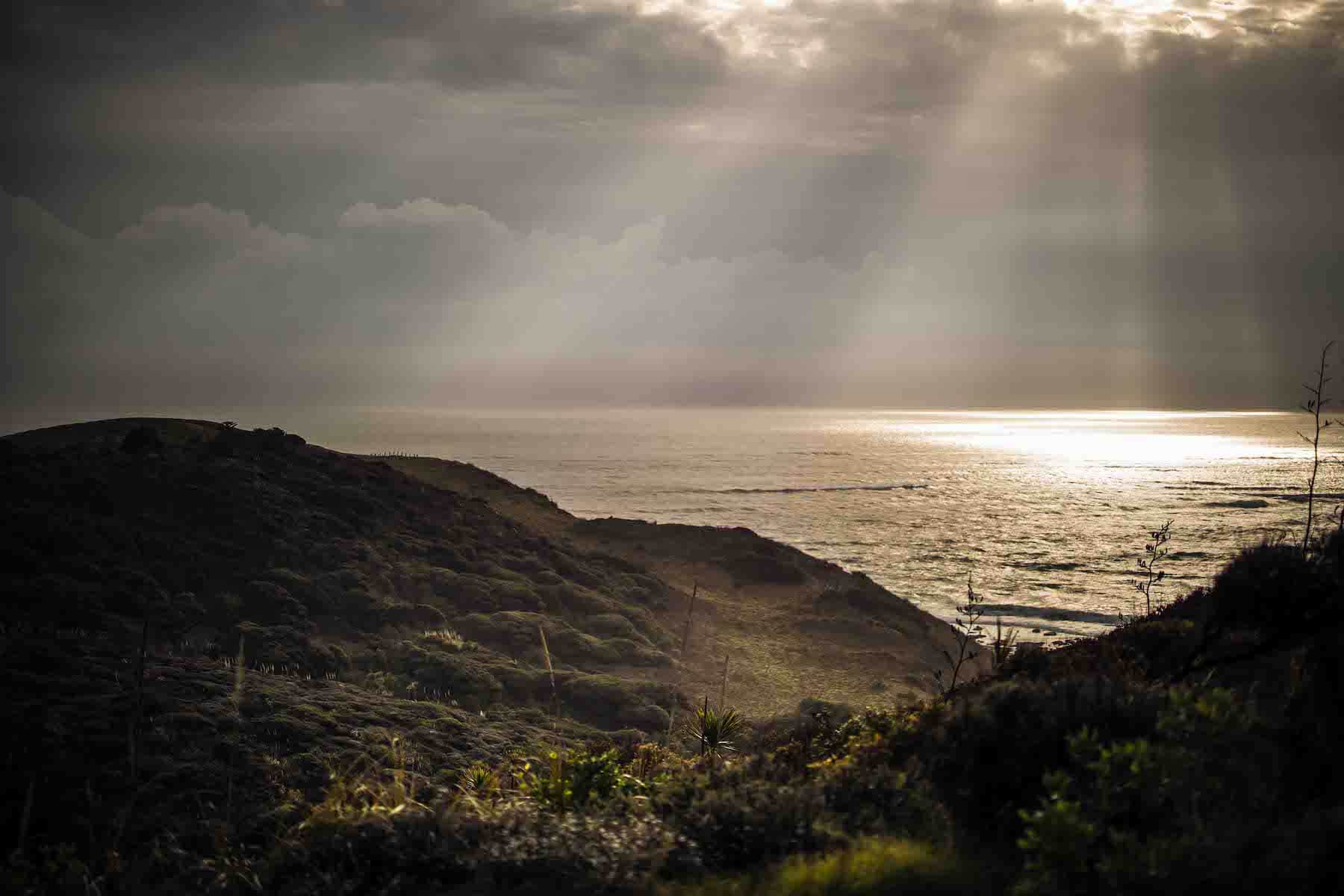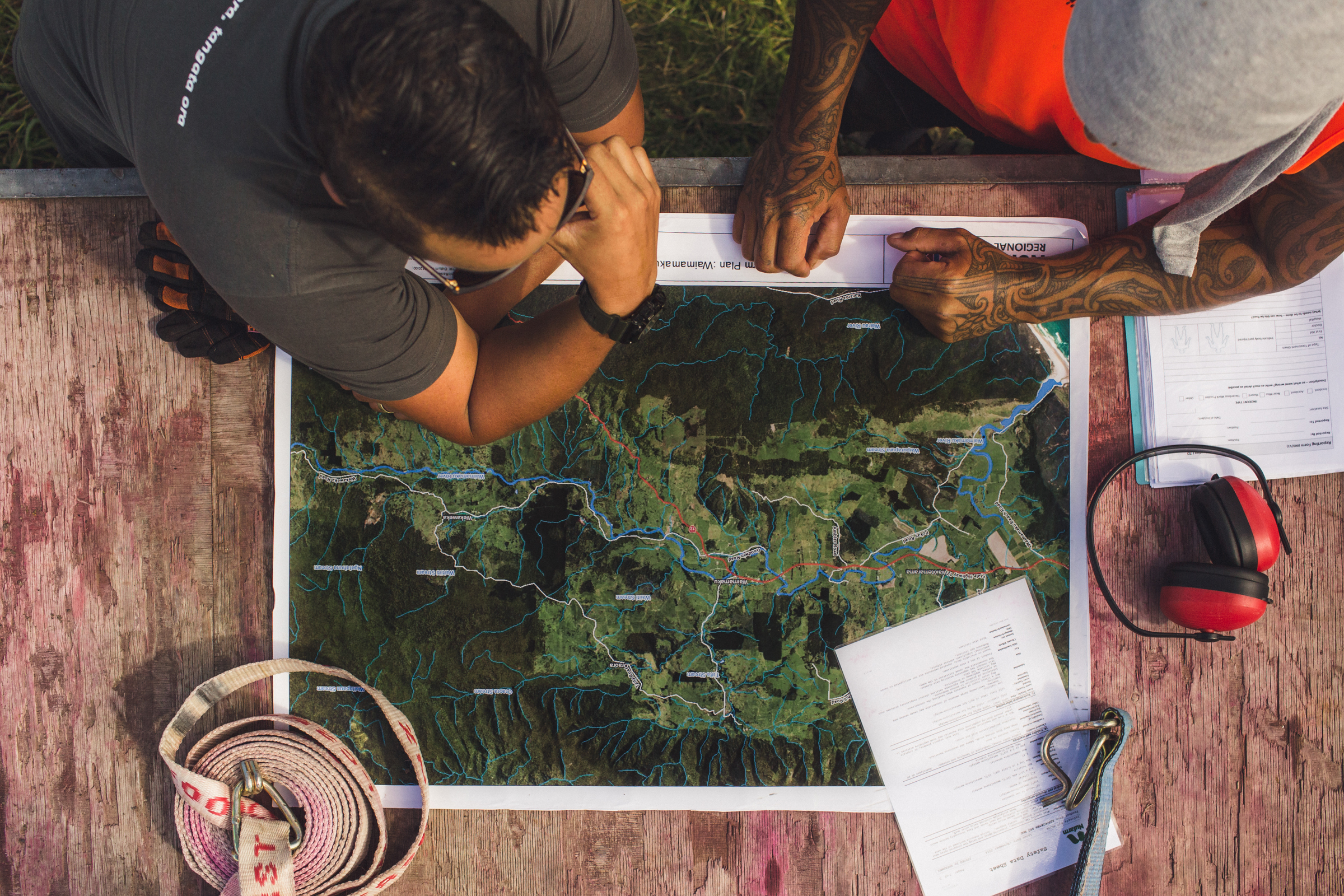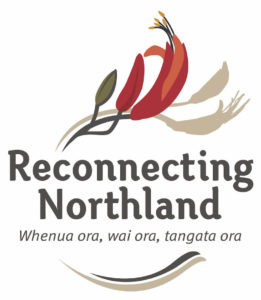It’s been four years since community
groups in the Hokianga
came together to
kōrero about the future
of their
lands
and
rivers
These communities established
a commitment to the health
of the land, waterways and people
of the wider Hokianga area
This isn’t a story belonging to
one person or group
It is a story of transformation
by a collective
He Ripo Kau represents coordinated action by a range of groups focused on ecological regeneration of the Hokianga.
As a rock dropped into water creates many ripples, spreading and connecting, He Ripo Kau grows.
Intensive land-use in Te Tai
Tokerau has damaged
waterways and
destabilised land the
same way it has elsewhere
in Aotearoa
When hau kāinga met to discuss
their vision for the area, there were
two main factors at play
restoration of the land
and its taonga, and
restoration of mana
for a people cleaved from it.
Reconnecting Northland organised hui and established a model by which the many groups working in Hokianga could come
together and drive forward with a
common vision.
This model is sometimes called
“connectivity conservation” but
the concepts, processes and
ways of working are
remarkably similar to those
practiced by Māori for centuries
– success is only success if it’s
for everyone
“We knew we needed a workforce
model to back up the He Ripo Kau
vision and bring everything together.
“It’s obvious but what enables that is
funding.
“He Ripo Kau brings people and groups
together and pools funding to magnify the impact
and create positive network effects,
contributing to a higher vision,
while at the same time focusing on their
local areas – we call this tapere. It’s a
community-defined geographical area
where good stuff happens.”
Eamon Nathan Te Roroa, Ngāti
Torehina, Ngāti Rango, Pou Manatū,
Reconnecting Northland
An opportunity arose in July of 2020, to test a working model of collective impact through the He Ripo Kau Recovery and Employment Package, funded by the Provincial Growth Fund.
In total, the PGF committed $3.2 million over two years, for improving the water quality in the Waimamaku and Whirinaki valleys.
By Oct 2020 the ‘Clean Clear Water’ project was operational
Fencing, clearing, and planting of waterways on private land could begin…and plans to develop local capability through targeted training, career plan development and local business/contactor support, got underway.
The Team on the Ground
Storm Tautari got involved with the work to
protect and plant the whenua because he went
to a He Ripo Kau workshop held
by Reconnecting Northland.
There was a little hui at my old
employer; a few of us from the hapū went.
Eamon [Reconnecting Northland Pou
Manatū] was talking about the people
flourishing, the bush flourishing…it just fit in.
[He Ripo Kau] means I can live the
dream, helping the boys out, helping
my cousins out, bring them on the journey.
It’s good for them; having
mahi at home is good”
-Storm Tautari, Ngāpuhi, Te Hikutū;
owner, All Out Contracting
Storm wanted to be
part of a solution
for the Hokianga.
He showed up for his whānau
and the whenua.
Now his company,
All Out Contracting,
employs eight workers.
They prep.
They plant.
They learn valuable skills and gain recognised qualifications that will stay with them when the mahi here is done.
“This is life changing for some of these guys. Being able to do this work has changed everything. The skills they’re learning will make them highly employable”
Te Maapi Simich-Pene, Ngāpuhi, Ngāti Haua, Ngāti Tūwharetoa, Ngāti Apakura/Hikairo; Project Manager, Reconnecting Northland
“This job means I can live at
home. There’s almost no
rentals around here. If the
work is away from home,
I’m away from home.”
-Paewhenua Louthor, Hauraki/Ngāpuhi
So far, Storm’s guys have planted
more than 50 hectares and
additional contractors from Bozcut, with the
support of landowners
have fenced more than 45 kilometres to protect waterways.
It can take up to six hui with local landowners
– many whose whānau have farmed here for generations –
to get an agreement and a plan in place
to fence and plant trees.
There’s no cost to the landowners, but it takes time to build those relationships and ensure the kaupapa is understood.
Traditional models of funding for social and environmental impact are not always aligned with the aspirations of communities, and miss opportunities to achieve lasting transformation.
So, He Ripo Kau is deliberately different.
It’s about vision, a shared kaupapa, robust debate and relationships. It hasn’t all been smooth sailing – the approach is new and it takes time to get on the same page – but we know togetherness is a crucial part of a working relationship.
The He Ripo Kau collective also includes existing groups working to save kiwi, trap invasive species, clear exotic weeds and plant natives. For the people that live here, this means greater economic security and social cohesion – they are targeting food sovereignty, noisy forests filled with birdsong, mauri and mana motuhake.
Reconnecting Northland continues to work with the groups attached to He Ripo Kau to realise its 100 year vision
Visit reconnectingnorthland.org.nz
to find out more
Thanks to the Ministry of Business Innovation and Employment (Provincial Growth Fund) for making the
sustainable workforce model possible.
